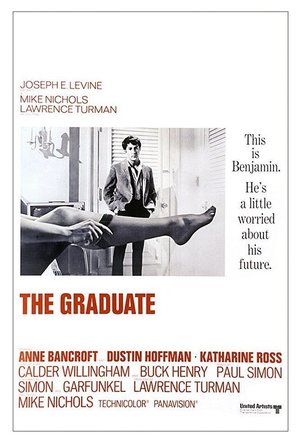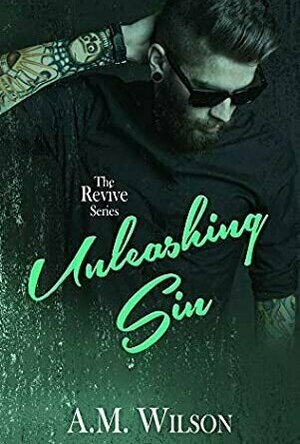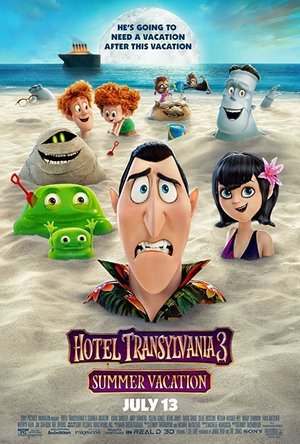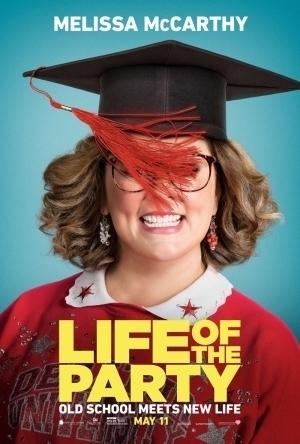Lainie Kazan recommended The Graduate (1967) in Movies (curated)
Merissa (12894 KP) rated Unleashing Sin (Revive #0.5) in Books
Apr 15, 2020
Sin has to be one of the most anti-heroes I've ever read about and he was simply perfect. His life hasn't been easy, in any way but things go horribly wrong when his father is murdered before his eyes. This leads him to having a break down and things only get worse when he thinks he has 'miraculously' found Molly when he actually hasn't. His reactions and grief are horrible to read about as they tore me up inside.
Shelby has been through what no person should ever go through. Although she sees herself as weak, she is incredibly strong and has the willpower to move forward. She is there for Sin as much as he is there for her, but make no mistake, she isn't prepared to take his sh*t either!
A slow-burner as it wouldn't be right any other way. So much here that I loved, so much so that as soon as I finished this book, I simply had to re-read Redesigning Fate!
If you like darkness in with your romance, then I simply can't recommend this one highly enough!
* A copy of this book was provided to me with no requirements for a review. I voluntarily read this book, and the comments here are my honest opinion. *
Merissa
Archaeolibrarian - I Dig Good Books!
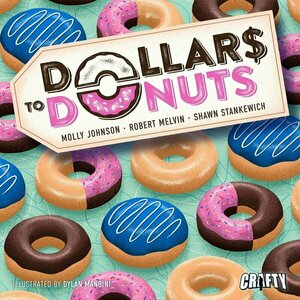
Dollars to Donuts
Tabletop Game
Donuts must be made whole! Dollars to Donuts is a puzzly, tile-laying game of donut...

Toca Pet Doctor
Education and Entertainment
App
The pets need your help! In Toca Pet Doctor our animal friends want your love, care and help. Meet...
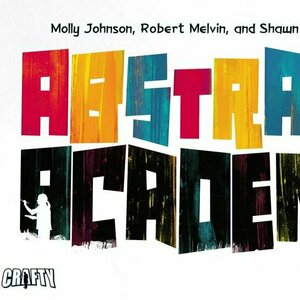
Abstract Academy
Tabletop Game
At the Abstract Academy, competition is fierce. You and your fellow art students vie for top marks...
Jim Butcher's "Warrior," the first piece, is very good. It follows Harry and the Carpenter family after they experienced some major changes in the last Dresden novel. I could have stood a little more Molly, but Harry and Michael were the focus characters and they worked out some things that really needed to be dealt with. I'm glad I read this before the next Dresden novel, because I feel there's important character development. I seriously recommend this book to all Dresden fans.
I haven't read any of Simon R. Green's novels, though I've heard of the Nightside series and thought about picking one up. If "The Difference a Day Makes" is typical, though, I may not bother. He is a good writer, so I'm not sure what it is that bothered me so much. I know that something framed as one of the nastiest things people could choose to do in this piece isn't even in my top 10, but I feel there's something else that I just can't quite articulate yet.
I've read all three of Kat Richardson's Greywalker novels and enjoyed them enough that I plan to keep reading. "The Third Death of the Little Clay Dog" is my favorite piece of her work, hands down. There's more light, somehow, and that's important to me.
"Noah's Orphans" is my first exposure to Thomas E. Sniegoski, as far as I can recall. It was an interesting piece. I found myself wondering about Remy Chandler's past, about how the character has developed. If there are novels featuring that character, I may give them a read. In any case, it brought up some interesting questions about faith and obedience. I think it would have been more personally relevant to me about 20 years ago, though.
Gareth von Kallenbach (980 KP) rated Hotel Transylvania 3: Summer Vacation (2018) in Movies
Jul 8, 2019
After centuries of running the Hotel Transylvania and escaping extinction, Drac (Adam Sandler), his daughter Mavis (Selena Gomez), and crew of oddball and lovable friends and family embark on their first vacation aboard a monstrous filled cruise ship headed for the lost city of Atlantis by way of the Bermuda Triangle. Feeling lonely, ready to find love again, Drac ends up ‘zinging’ with the human cruise director, Ericka (Kathryn Hahn). As you may recall from the first installment, to ‘zing’ only happens once in a monster’s life when two individuals first meet eyes, they find their true love and in that moment are meant to spend the rest of their lives together. Attempting to keep their rendezvous and connection a secret from Mavis, Drac decides to recruit his loyal subjects to help him distract his daughter. As the ship starts narrowing in on the Las Vegas-esque lost city of Atlantis, Mavis grows very suspicious of what her father is up to. She decides to start tracking his every move and realizes their vacation is not all it’s cracked up to be.
From the imaginative mind of Director Genndy Tartokovsky. HT3 is dazzling animated film that brings all the laughs, and humor that one can expect when Adam Sandler and his motley crew of usual suspects are involved. When you involve such talent as Steven Duscemi, Adam Sandberg, Fran Drescher, Molly Shannon, Kevin James, and Mel Brooks to helm the character voices, it’s guaranteed to be a fun filled ride that will keep you laughing from one moment to the next. A wise cracking, witty summer treat that teaches the importance of seeing past our differences and accepting people/monster’s for who they are and realize we’re not so different to begin with.
Gareth von Kallenbach (980 KP) rated Life of the Party (2018) in Movies
Jul 8, 2019
While recovering from the emotional bomb, her best friend Christine (Maya Rudolph as that BFF who says all things unedited and is SO VERY Ride or Die) helps to pull her (and the audience) out of the dark depths with the best drunk racquetball sideline ever. The chemistry between McCarthy and Rudolph feels like two naturals riffing off with each other. Their interchanges throughout the film had me snort-laughing throughout.
Deanna decides that since she did not graduate with her degree due to motherhood and Dan, it’s an opportunity to finish and pursue her dream of being an archaeologist. Dee registers and lets her daughter know of the huge changes happening. Dee can come off as a Pollyanna to a degree, but it is her can do, positive attitude that eventually helps her ride out the rollercoaster for her senior year.
Once she is entrenched in the school year, her daughter’s friends bring her into their circle and forces her to life the college life instead of only studying all the time. She meets the very handsome Jack ( Luke Benward) a much younger man, teaching him the finer arts of canoodling of a more experienced kind.
The film is cleverly written and produced by McCarthy and Ben Falcone (her husband) at the helm directing this movie. Melissa, is brilliant at giving us wonderfully unexpected physical comedy with fantastic comic timing. The cast, have given us an enjoyable movie that is a heartily, welcomed respite.
Life of the Party is a fun Girls Night Out.
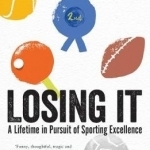
Losing it: A Lifetime in Pursuit of Sporting Excellence
Book
To understand Anna Karenina, Mellors, Molly Bloom, Dante, Romeo, Juliet and Bridget Jones you must...
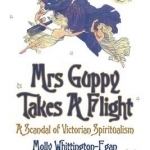
Mrs Guppy Takes a Flight: A Scandal of Victorian Spiritualism
Book
Many moons ago, in the high Victorian era, Mrs. Guppy, the famous medium, was enjoying a sparkling...
